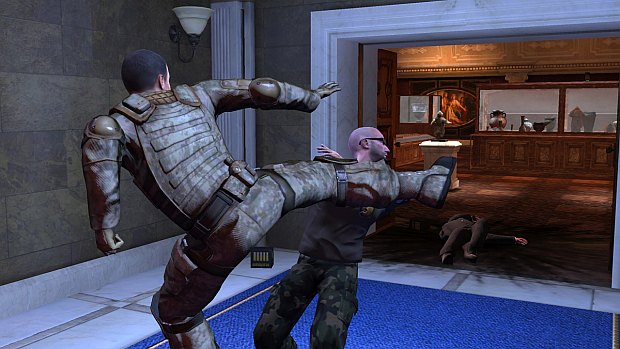I like Alpha Protocol. I like it a lot. So far it’s one of my favorite games of the year in a year already full of superb RPGs and promising more to come.
As Destructoid’s resident Alpha Protocol apologist, I acknowledge that the game is very rough-hewn (at times almost intolerably so), but in my estimation, what it does right carries far more weight than what it does wrong. But this post isn’t about how I disagree with the review, but rather about how I might not be the only Alpha Protocol apologist out there.
Though the franchise is effectively dead thanks to middling reviews and slow sales, the game itself has still managed to move over 700,000 copies since its launch in late May. Those aren’t exactly Modern Warfare 2 numbers, but they’re a good amount considering that it’s a new IP from a (relatively) obscure developer based in mechanics that are much more “RPG-like” than some other, more distilled titles that I won’t name.
What strikes me, though, isn’t the number so much as Sega’s behavior. 700k is a lot. Just how high were their sales expectations for Alpha Protocol that they’d definitively choose to cut and run after it “bombed”? Given the strength of their marketing push prior to the release, I’m thinking they were hoping for quite a lot. It’s still a shame. A lot of much less deserving games have gotten sequels, and now Obsidian won’t get the chance to make a more polished follow-up.
What do you think? Did Sega jump the gun and kill off a slow-burn title? Did they, like too many other publishers, put overmuch weight on Metacritic scores and first-week numbers? Or did they just know, in their corporate heart-of-hearts, that Alpha Protocol just sucked so bad?
Sega sold 700,000 copies of Alpha Protocol [Siliconera]








